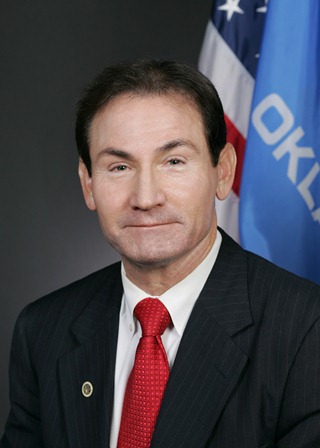In order to provide equal access and equal opportunity to people with diverse abilities, this site has been designed with accessibility in mind. Click here to view
Committee gives green light to bill to ban texting while driving
 Sen. Ron Sharp
Sen. Ron Sharp
The Senate Public Safety Committee approved legislation Wednesday that could save hundreds of Oklahoma lives. Senate Bill 442, by Sen. Ron Sharp, would make it unlawful to compose, send or read a text message while driving.
“Too many Oklahomans are tragically being killed or killing others because they are texting and driving,” said Sharp, R-Shawnee. “Studies have repeatedly shown that texting while driving is as dangerous as drinking and driving. We’ve outlawed drinking and driving – now it’s time we put a stop to this dangerous behavior as well before more lives are senselessly lost.”
Under SB 442, which was carried over from last session, anyone convicted of violating the law would be punished by a fine not to exceed $500, including court costs. The bill was amended in committee and the fine, including court costs, was lowered to no more than $30 for first offenses and $50 for second and subsequent offenses.
SB 442 was requested by AAA whose members are afraid for their safety on the road because of other drivers texting. Chuck Mai, vice president of public affairs for AAA, said the organization has been fighting for a ban on texting in Oklahoma for the last five years.
“I can’t think of anything more dangerous than for a driver to read, write or send a text message. Your eyes are off the road, your hands are off the wheel and your mind is not focused on driving,” said Mai. “AAA feels it’s time for the Oklahoma legislature to step up and join the 42 other states that have sent a clear and urgent message to their motorists that texting is so dangerous that they have outlawed it.”
According to the Oklahoma Highway Safety Office there were more than 11,000 crashes in 2012 caused by distracted drivers.
The bill provides exemptions for law enforcement and safety personnel; drivers of authorized emergency vehicles; someone operating an amateur radio or who holds a current, valid amateur radio station license issued by the FCC; or those who use a cell phone solely to contact an emergency response operator, a hospital, physician’s office, health clinic, a provider of ambulance or firefighting services, or a law enforcement agency in emergency situations.
SB 442 will now move to the full Senate for further consideration.
 Oklahoma Senate
Oklahoma Senate

